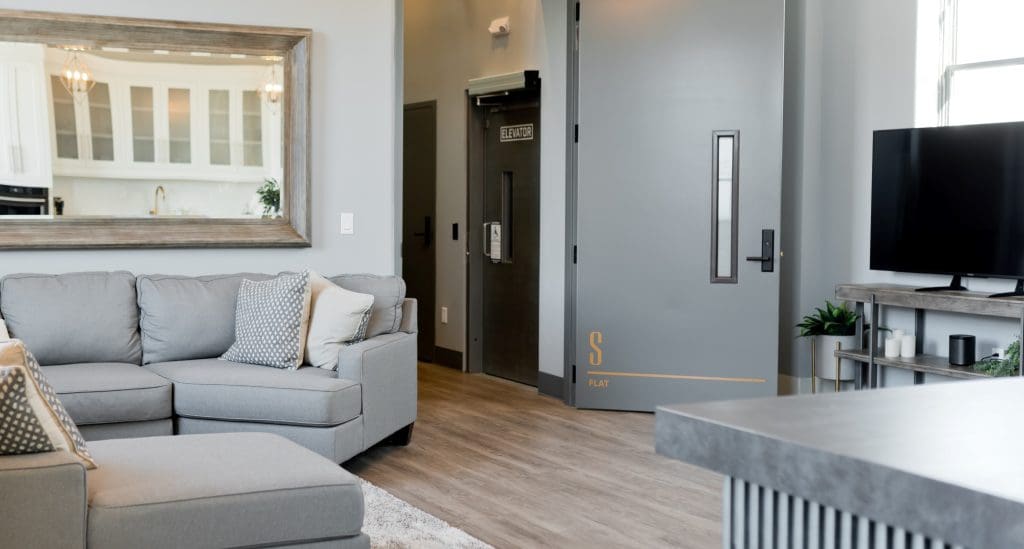There is an increasing acknowledgment that organisations and travel providers play a vital role in ensuring business travellers and employees feel a genuine sense of security and wellbeing when working away from their home base. In fact, the obligation of employers to safeguard the physical and mental welfare of employees and contractors – known as Duty of Care – is mandated by law in many countries worldwide, including the UK. In addition, the International Organization for Standardization created the ISO 31030 to guide organisations in managing the risks associated with employee travel.

According to a survey of 500 UK-based business travellers, commissioned by World Travel Protection, almost three quarters of business travellers (73%) would decline a business trip if they didn’t feel confident their employer was prioritising their security and wellbeing.
Although wellbeing and safety stands out as a primary aspect of Duty of Care, it’s also important to recognise that it encompasses broader concerns too, such as sustainability, diversity, equality, and inclusion.

Prioritising security and wellbeing
So where to begin? Here are some ways employers can mitigate risk and prioritise the safety, security and wellbeing of their travelling employees.
- Risk assessment. Conduct a thorough assessment of potential risks associated with business travel. These could be: destination safety, transportation modes, accommodation options, health concerns, political stability, and cultural differences.
- Policy development. Develop a comprehensive corporate travel policy. This should outline guidelines, procedures, and expectations for employees when travelling for work. It should address booking procedures, expense management, safety protocols, communication plans, and emergency procedures.
- Pre-travel preparation. Provide employees with adequate resources and information to prepare for their trips effectively. This may include travel advisories, destination briefings, cultural awareness training, health and safety guidelines, and contact details for emergency assistance.

- Travel booking and accommodation. Establish protocols for booking travel arrangements and selecting accommodation options that prioritise safety, comfort, and convenience for employees. Consider factors such as proximity to meeting locations, transportation access, security features, and health and hygiene standards.
- Communication and monitoring. Implement communication channels to stay in touch with employees during their travels and provide support as needed. This may include mobile apps, check-in procedures, travel alerts, and emergency response mechanisms. Regularly monitor travel activities and adjust plans as necessary based on changing circumstances.
- Health and safety measures. Implement measures to promote the health and safety of employees during travel, such as providing access to medical assistance, vaccinations, health screenings, travel insurance coverage, and guidance on hygiene practices.
- Emergency response planning. Develop contingency plans and protocols to respond to emergencies or unexpected events that may occur during travel, such as natural disasters, medical emergencies, security threats, or transportation disruptions. Ensure employees are aware of emergency procedures and know how to access assistance if needed.
- Continuous improvement. Regularly review and update corporate travel policy and procedures based on feedback, lessons learned from past trips, emerging risks, and changes in regulations or best practices. Continuously strive to improve the effectiveness of travel risk management efforts and enhance the overall security and wellbeing of employees during their travels.

Your accommodation provider matters
Look to reputable suppliers with a well-evidenced approach to ESG matters. How do they ensure the safety and security of their guests? Where are they in their journey and commitment to being an environmentally friendly and responsible business? What is their approach to governance when it comes to fundamental good business practices? Have they been externally audited and benchmarked?
If you decide to use an accommodation agency, how do they manage and verify their supply chain of partners? What steps are in place to ensure a commonality of good standards? What checks and balances are there? Are they working with ad hoc private accommodation operators, or only working with professional, assessed providers? How are ESG standards and practices managed and measured through the chain?
Offering a wide range of accommodation options including hotels, aparthotels, and serviced apartments is an important way to engage your employees and discourage them from booking off policy. Many employees see themselves as seasoned travel agents because they arrange their own holidays and are familiar with sourcing accommodation on well-known platforms. This can lead to them wanting to plan and book their own business travel arrangements. However, this approach immediately impacts an employer’s ability to fulfil their duty of care responsibilities. By offering choice you are more likely to keep employees in policy and to keep them safe.

Serviced apartments, aparthotels, and serviced accommodation – a path to enhanced security and wellbeing
Adding serviced accommodation and aparthotel options into an accommodation programme can help to support traveller and assignee wellbeing, with such properties providing a host of benefits.
This type of accommodation typically has more space to live and work than an average hotel room, with separate areas for sleeping, working, and living. Kitchens mean that guests can self-cater and enjoy food that is familiar, healthy, and cost-effective. It’s also easier to maintain health and fitness routines, with space to do home yoga/Pilates and laundry facilities to wash running/gym kits.
Having one’s own front door in a busy and sometimes unfamiliar world helps to offer a sense of peace and calm – a private space to truly relax and call home.
Aparthotels also tend to offer the benefit of a serviced apartment with some of the additional services of a hotel. These might include on-site restaurants, a gym, co-working spaces, and hotel check-in.

Making sure that your people are safe while they’re on the road is vital. Some smart planning goes a long way – from selecting suppliers you can rely on and who provide a haven for your travellers, to providing choice to your assignees and keeping lines of communication open. Doing all this helps to keep stress levels low and makes sure your employees are as safe, happy, and productive as possible while they’re away.
Here at Situ, we’re dedicated to making this happen. From our established, trusted global accommodation supply to all the things we do to make sure each and every stay is the best it can be, we’ll help you prioritise the security and wellbeing of your travelling employees. Pick up the phone or email our team of accommodation specialists today.

